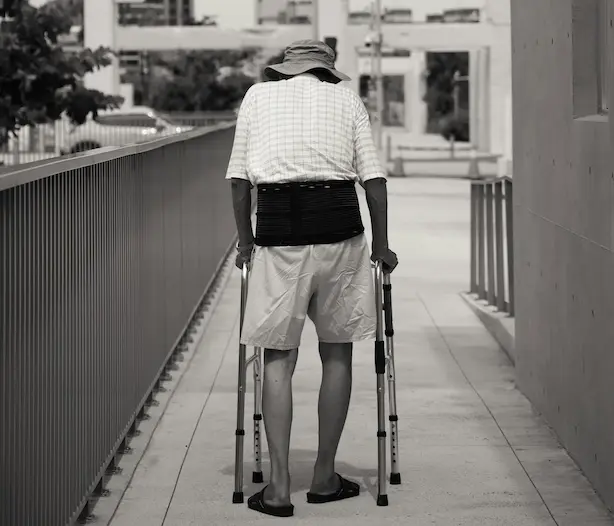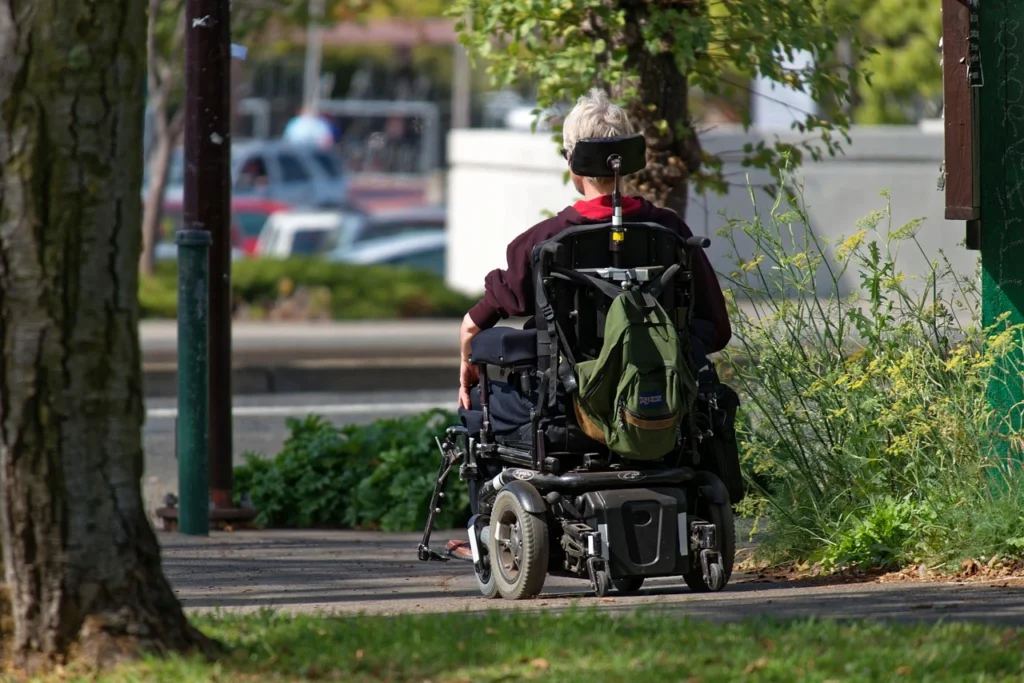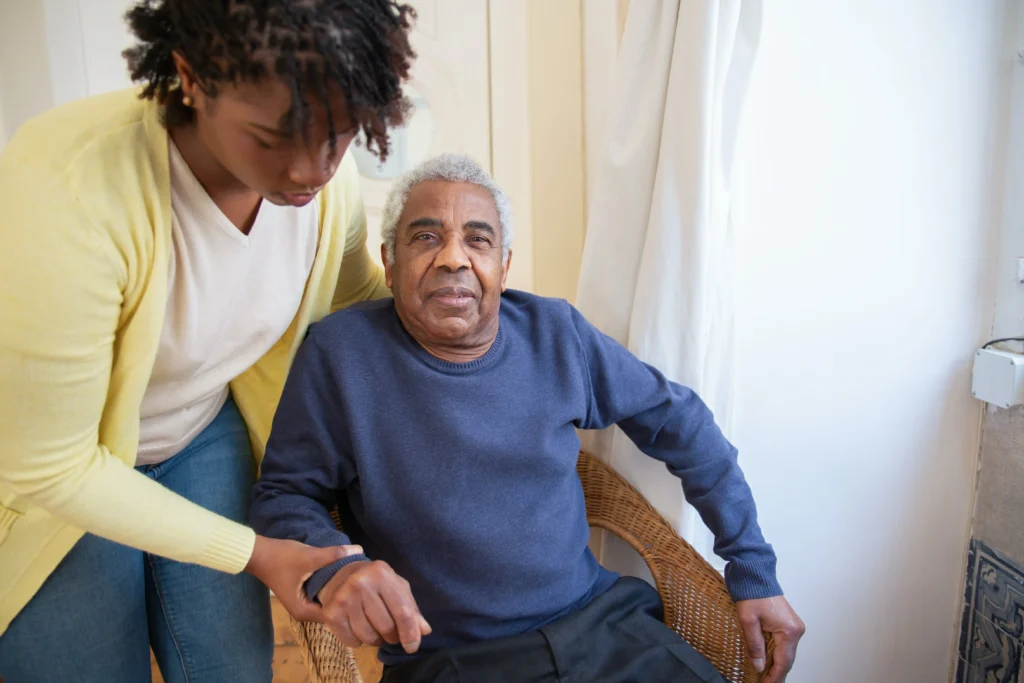Hip Fracture Recovery: Top 10 Orthopedic Hospitals in USA

- Understanding hip fractures and their impact on seniors
- Common challenges during hip fracture recovery for seniors
- Recommended hip exercises for hip fracture recovery
- Caregiver Tips for supporting elderly during hip fracture recovery
- Top 10 hospitals with the best orthopedic surgeons near me
- Nutritional considerations for seniors during hip fracture recovery
- Assistive devices and home modifications for hip fracture recovery
- Resources and Support for Caregivers
- Conclusion: Empowering Seniors and Caregivers during Hip Fracture Recovery
- Frequently Asked Questions (FAQs)
Understanding hip fractures and their impact on seniors
This post may contain affiliate links, meaning I may earn a commission if you make a purchase, at no extra cost to you. I only recommend products I trust. Thank you for your support.
Hip fractures are a common injury among seniors, often resulting from falls or accidents.
As a caregiver, it’s essential to understand the impact of these fractures on seniors’ overall health and well-being.
A hip fracture can significantly limit mobility and independence, leading to a range of physical and emotional challenges.
Seniors may experience pain, difficulty walking, and a loss of confidence in their abilities.
It’s crucial to provide the necessary support and care during this challenging time to promote a smooth recovery process.
To fully comprehend the impact of hip fractures on seniors, it’s important to understand the anatomy involved.
The hip joint is a ball-and-socket joint connecting the thigh bone (femur) to the pelvis. A fracture occurs when there is a break in the femur near the hip joint.
This injury can have severe consequences for seniors, as it affects their ability to perform everyday activities such as walking, standing, and even sitting down.
The recovery process will depend on various factors, including the type and severity of the fracture, the individual’s overall health, and the quality of care provided.
Common challenges during hip fracture recovery for seniors
The road to hip fracture recovery can be filled with challenges for seniors.
Understanding these challenges can help caregivers provide better support and address the specific needs of their loved ones.
Here are some common challenges that seniors may face during the recovery process:
Pain management:
Seniors may experience significant pain following a hip fracture.
Effective pain management techniques, such as medication, physical therapy modalities, and relaxation techniques, can help alleviate discomfort and promote healing.
Limited mobility:
Hip fractures often result in limited mobility and difficulty performing daily activities.
Seniors may need assistance with walking, transfers, and navigating their environment.
Caregivers can provide mobility aids, such as walkers or canes, and ensure a safe and accessible home environment.
Depression and anxiety:
The impact of a hip fracture can take an emotional toll on seniors.
Feelings of frustration, sadness, and anxiety are common.
Caregivers should maintain open communication, provide emotional support, and encourage social engagement to combat these feelings.
Risk of falls:
Seniors who have experienced a hip fracture are at an increased risk of future falls.
It’s crucial to implement fall prevention strategies, such as removing tripping hazards, installing grab bars, and promoting regular exercise to improve strength and balance.
Loss of independence:
Hip fractures can result in a temporary or permanent loss of independence for seniors.
It’s important for caregivers to promote a sense of autonomy by involving seniors in decision-making, encouraging self-care activities, and providing opportunities for socialization.
By being aware of these challenges, caregivers can anticipate and address the specific needs of seniors during their hip fracture recovery journey.
Recommended hip exercises for hip fracture recovery
Recovering from a hip fracture requires a combination of rest, rehabilitation, and hip exercises.
Engaging in targeted exercises can help seniors regain strength, flexibility, and mobility in the affected hip.

Here are 10 hip exercises recommended for hip fracture recovery:
Ankle pumps:
- Sit in a chair and move your injured foot up and down, flexing and extending the ankle.
- Repeat this motion for 10-15 repetitions, several times a day.
Heel slides:
- Lie on your back with your knees bent. Slowly slide your heel towards your buttocks, keeping the other leg straight.
- Return to the starting position and repeat on the other side.
- Perform 10-15 repetitions on each leg.
Quad sets:
- Sit or lie down with your legs straight.
- Tighten the muscles on the front of your thigh and hold for 5-10 seconds.
- Relax and repeat for a total of 10-15 repetitions.
Hip abductions:
- Stand next to a sturdy chair or countertop for support.
- Lift your injured leg out to the side, keeping it straight.
- Hold for a few seconds, then lower it back down.
- Perform 10-15 repetitions on each leg.
Bridging:
- Lie on your back with your knees bent and feet flat on the floor.
- Lift your hips off the ground, making a bridge shape with your body.
- Hold for a few seconds, then lower back down.
- Repeat 10-15 times.
Step-ups:
- Stand in front of a step or sturdy platform.
- Step up with your injured leg, then bring your other leg up to meet it.
- Step back down and repeat on the other side.
- Perform 10-15 step-ups on each leg.
Seated leg lifts:
- Sit in a chair with your back straight.
- Lift your injured leg straight out in front of you, keeping it as straight as possible.
- Hold for a few seconds, then lower it back down.
- Repeat 10-15 times.
Calf raises:
- Stand behind a chair or counter for support.
- Rise up onto your toes, lifting your heels off the ground.
- Hold for a few seconds, then lower back down.
- Perform 10-15 calf raises.
Hip extensions:
- Stand behind a chair or counter for support.
- Lift your injured leg straight back, keeping it as straight as possible.
- Hold for a few seconds, then lower it back down.
- Repeat 10-15 times on each leg.

Toe taps:
- Sit in a chair with your feet flat on the floor.
- Lift your injured foot and tap your toes on the ground, then lift your foot and tap your heel on the ground.
- Repeat this motion for 10-15 repetitions.
Remember to consult with a healthcare professional or physical therapist before starting any exercise program.
They can provide guidance and ensure that the exercises are appropriate for the individual’s specific condition and stage of recovery.
Additionally, you can consider physical therapy to get the most benefits.
Caregiver Tips for supporting elderly during hip fracture recovery
As a caregiver, your role is crucial in supporting seniors during their hip fracture recovery journey.
Here are some caregiver tips to help you provide effective care and support:
Educate yourself:
- Learn as much as you can about hip fractures, their recovery process, and the specific needs of your loved one.
- This knowledge will empower you to make informed decisions and provide appropriate care.
Communicate openly:
- Maintain open and honest communication with the senior you are caring for.
- Encourage them to express their feelings, concerns, and needs.
- Listen attentively and validate their experiences.
Offer emotional support:
- Recovering from a hip fracture can be emotionally challenging.
- Be a source of comfort and encouragement.
- Provide reassurance and remind them that their progress is important and valued.
Assist with activities of daily living:
- Help with daily tasks such as bathing, dressing, and meal preparation.
- Ensure that the senior’s environment is safe and accessible, making modifications as needed.
Encourage independence:
- While providing support, also encourage independence.
- Allow seniors to participate in their care as much as possible.
- This promotes a sense of autonomy and boosts self-confidence.
Promote a healthy lifestyle:
- Encourage seniors to follow a nutritious diet, stay hydrated, and engage in regular exercise as recommended by healthcare professionals.
- A healthy lifestyle can aid in the recovery process.
Provide companionship:
- Loneliness and isolation can negatively impact recovery.
- Spend quality time with the senior, engaging in activities they enjoy.
- This promotes emotional well-being and social connection.
Seek support:
- Caregiving can be challenging, so don’t hesitate to seek support for yourself.
- Connect with other caregivers, join support groups, and consider respite care to avoid burnout.
By implementing these tips, you can provide effective caregiver support during the hip fracture recovery process, enhancing the overall well-being of the senior you are caring for.
If you are searching for a compassionate elderly caregiver, contact me for further details.
Top 10 hospitals with the best orthopedic surgeons near me
When it comes to hip fracture recovery, having access to top-notch orthopedic surgeons near me or in your area is essential.
These orthopedic specialists are skilled in diagnosing and treating hip fractures, ensuring the best possible outcome for your loved one.

These are 10 hospitals with the best orthopedic specialists in the United States:
Hospital for Special Surgery (HSS)
- Specializes in orthopedic surgery and musculoskeletal medicine, including joint replacement, spine surgery, sports medicine, and rheumatology.
- Located in New York.
Mayo Clinic Orthopedics
- Comprehensive orthopedic care covering various specialties, including joint replacement, spine surgery, sports medicine, and orthopedic oncology.
- Located in Rochester, Minnesota.
Cleveland Clinic Orthopedics
- Offers a wide range of orthopedic services, including joint replacement, sports medicine, spine surgery, and trauma care.
- Located in Cleveland, Ohio.
Johns Hopkins Orthopaedic Surgery
- Specializes in orthopedic surgery and musculoskeletal disorders, including joint replacement, sports medicine, and spine surgery.
- Located in Baltimore, Maryland.
Steindler Orthopedic Clinic
- Offers orthopedic care, including joint replacement, sports medicine, hand surgery, and general orthopedics.
- Located in Iowa City, Iowa.
Rothman Orthopaedic Institute
- Comprehensive orthopedic care, covering joint replacement, spine surgery, sports medicine, and orthopedic trauma.
- Located in Philadelphia, Pennsylvania.
Rush University Medical Center Orthopedics
- Offers a range of orthopedic services, including joint replacement, sports medicine, spine surgery, and orthopedic oncology.
- Located in Chicago, Illinois.
Texas Orthopedic Hospital
- Specializes in orthopedic care, including joint replacement, sports medicine, spine surgery, and orthopedic trauma.
- Located in Houston, Texas.
OrthoCarolina
- Offers a range of orthopedic services, including joint replacement, sports medicine, spine surgery, and orthopedic rehabilitation.
- Located in Charlotte, North Carolina.
Stanford Medicine Orthopaedic Surgery
- Specializes in orthopedic surgery, including joint replacement, sports medicine, spine surgery, and orthopedic oncology.
- Located in Stanford, California.
Nutritional considerations for seniors during hip fracture recovery
Proper nutrition is essential for seniors during hip fracture recovery.
Incorporating a 7 day meal plan for the elderly can support the healing process, promote bone health, and enhance overall well-being.
Here are some nutritional considerations to keep in mind:
Adequate protein intake:
- Protein is crucial for tissue repair and muscle strength.
- Include lean meats, poultry, fish, eggs, dairy products, legumes, and nuts in the senior’s diet.
- Aim for a minimum of 1.0-1.2 grams of protein per kilogram of body weight per day.
Calcium and vitamin D:
- These nutrients are essential for bone health.
- Dairy products, leafy green vegetables, fortified plant-based milk, and fatty fish are excellent sources of calcium.
- Sun exposure and fortified foods can provide vitamin D.
Fiber-rich foods:
- Constipation is a common issue during recovery due to decreased mobility and changes in diet.
- Include fiber-rich foods such as whole grains, fruits, vegetables, and legumes to support digestive health.
Hydration:
- Seniors should stay well-hydrated to support healing and prevent complications.
- Encourage them to drink water throughout the day and limit caffeinated and sugary beverages.
Vitamins and minerals:
- A well-rounded diet should include a variety of fruits, vegetables, whole grains, and lean proteins to provide essential vitamins and minerals.
- Consider consulting a registered dietitian to ensure optimal nutrient intake.
Monitor medication interactions:
- Some medications, such as blood thinners, can interact with certain foods.
- Ensure that the senior’s diet aligns with their medication regimen and consult with a healthcare professional if needed.
By prioritizing proper nutrition, caregivers can help seniors maximize their hip fracture recovery and support their overall health.
Assistive devices and home modifications for hip fracture recovery
Creating a safe and accessible environment is crucial for seniors recovering from hip fractures.
These assistive devices for elderly and home modifications can significantly enhance safety and independence during the recovery process.
Here are some recommendations:
Mobility aids:
- Depending on the individual’s needs and abilities, consider providing assistive devices such as walkers, canes, or crutches.
- These aids offer stability and support while walking or navigating the environment.
Grab bars and handrails:
- Install grab bars in the bathroom, near the toilet, and in the shower or bath area to assist with balance and transfers.
- Handrails on staircases can provide additional support and prevent falls.
Raised toilet seat:
- A raised toilet seat reduces the strain placed on the hip joint during sitting and standing.
- It can make using the toilet more comfortable and minimize the risk of falls.
Shower chair or bench:
- Seniors may find it challenging to stand for extended periods in the shower.
- A shower chair or bench provides a secure and stable seating option, ensuring safety and reducing fatigue.
Non-slip mats and rugs:
- To prevent slips and falls, place non-slip mats or rug grips in the bathroom, kitchen, and other areas prone to moisture.
- Ensure that all rugs are securely fastened to the floor.
Widened doorways:
- If necessary, consider widening doorways to accommodate mobility aids such as walkers or wheelchairs.
- This modification improves accessibility and ease of movement throughout the home.
Good lighting:
- Proper lighting is essential for safety. Ensure that all areas of the home are well-lit, especially stairways and hallways.
- Use nightlights in bedrooms and bathrooms to prevent accidents during nighttime.
Clear pathways:
- Remove any tripping hazards such as loose rugs, clutter, or cords.
- Ensure that furniture and other objects are arranged to allow for clear and unobstructed pathways.
By implementing these assistive devices and home modifications, caregivers can create a safe and supportive environment for seniors during their hip fracture recovery.
Resources and Support for Caregivers
These resources and support services offer valuable information, guidance, and community for individuals recovering from hip fractures and their caregivers.
Always consult with healthcare professionals for personalized advice and care.
Here are five valuable resources and support networks for caregivers:
National Osteoporosis Foundation (NOF):
- Educational resources on osteoporosis prevention and management.
- Support groups for individuals dealing with osteoporosis-related fractures.
- Information on nutrition and exercise to support bone health.
American Academy of Orthopaedic Surgeons (AAOS):
- Patient education materials on hip fractures and their recovery.
- Find an Orthopaedist tool for locating specialists.
- Information on rehabilitation exercises and post-surgery care.
AARP Caregiving Resource Center:
- Information and tips for caregivers assisting seniors in recovery.
- Online forums and support groups for caregivers.
- Resources on home modifications and caregiving strategies.
Eldercare Locator:
- Connects seniors and caregivers with local resources and support services.
- Information on community-based programs for seniors.
- Assistance in finding local support groups and services.
National Institute on Aging (NIA):
- Educational materials on senior health and wellness.
- Tips on exercise and nutrition for older adults.
- Information on staying active and maintaining independence.
These resources and support networks are invaluable for caregivers, providing guidance, emotional support, and access to information that can enhance the quality of care provided to individuals during hip fracture recovery.
Conclusion: Empowering Seniors and Caregivers during Hip Fracture Recovery
Hip fracture recovery can be a challenging and overwhelming process for both seniors and caregivers. However, with the right support and resources, it is possible to navigate this journey successfully.
By collaborating with orthopedic specialists who specialize in hip fracture recovery, seniors can receive the best possible care tailored to their unique needs.
As a caregiver, it is essential to utilize the available resources and support networks to ensure you are well-equipped in providing the necessary care and support to your loved one.
By empowering seniors and caregivers, we can create an environment that promotes healing, independence, and an improved quality of life.
Remember, hip fracture recovery is a journey that requires patience, perseverance, and a strong support system.
With the right orthopedic specialists, resources, and support networks, you can make a significant difference in your loved one’s recovery process.
Additionally, research has shown that electrotherapy can also help with hip fracture recovery.
Read about the benefits of moringa in men and in alleviating pain, physical therapists salary, health benefits of eating green bananas.
Frequently Asked Questions (FAQs)
How long does it take to recover from a hip fracture?
The recovery time for a hip fracture can vary depending on various factors such as the severity of the fracture, the age and overall health of the individual, and the treatment plan. Generally, it takes around 6 to 12 weeks for a full recovery, but it can take longer for some individuals.
Are there any exercises that can help with hip fracture recovery?
Yes, hip exercises play a crucial role in the recovery process. These exercises aim to improve strength, flexibility, and balance. It is important to consult with a healthcare professional or physical therapist to determine the appropriate exercises for your loved one’s specific condition.
How can I prevent falls and reduce the risk of hip fractures for seniors?
To prevent falls and reduce the risk of hip fractures, it is important to create a safe environment at home by removing hazards, installing grab bars in bathrooms, and ensuring proper lighting. Regular exercise, a balanced diet, and maintaining bone health through adequate calcium and vitamin D intake can also help reduce the risk of fractures.
What should I do if my loved one experiences another fall after hip fracture recovery?
If your loved one experiences another fall after hip fracture recovery, it is crucial to seek medical attention immediately. Falls can indicate underlying health issues or balance problems that need to be addressed. Consult with your loved one’s healthcare provider to determine the appropriate course of action.
How can I manage the emotional stress of being a caregiver during hip fracture recovery?
Being a caregiver can be emotionally challenging. It is important to prioritize self-care, seek support from friends, family, or support groups, and consider respite care options to give yourself a break. Taking care of your own well-being is essential to provide the best care and support to your loved one.
Remember, you are not alone in this journey. Reach out for support, utilize available resources, and take one day at a time.
With patience, knowledge, and support, you can navigate the hip fracture recovery process and help your loved one regain their independence and quality of life.




